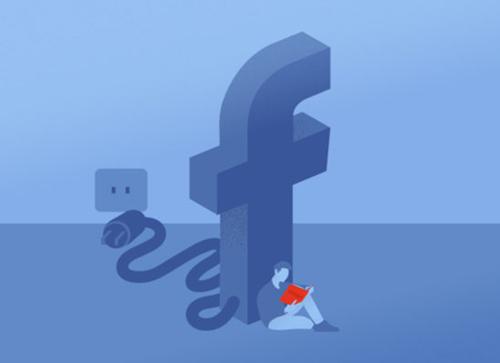You are here
Facebook dives deep into news with publisher deal
By AFP - May 14,2015 - Last updated at May 14,2015
WASHINGTON — Facebook pushed deeper into the media business Wednesday by crafting a deal with news publishers which allows the social network to deliver articles directly to readers and could reshape the news landscape.
The long-anticipated move by Facebook means it will host news items on its servers to give readers faster access.
The plan has been hotly debated in the news industry — by those who argue it can help struggling media groups, and others who say news organisations will lose control of their content to the social network.
The new feature called Instant Articles “makes the reading experience as much as ten times faster than standard mobile web articles”, Facebook said.
Sharing on Facebook’s mobile app is growing but the average article takes about eight seconds to load.
Partners in the launch are The New York Times, National Geographic, BuzzFeed, NBC, The Atlantic, The Guardian, BBC News, Spiegel and Bild, Facebook said.
Facebook France chief Laurent Solly said that French media groups would also join the effort.
“It will be mostly dailies at the start, but we are open to all news organisations,” Solly said in a radio interview.
Facebook said publishers may sell ads in the articles and keep the revenue or use Facebook’s ad network. Publishers will also be able to track traffic and other data of their content hosted by the social network.
Instant Articles will initially be available on the Facebook app for iPhone, but Facebook is working to expand the platform.
News juggernaut
A recent Pew Research Centre report found some 30 per cent of Americans get at least some of their news from Facebook.
But media groups have been struggling with the shift to digital from print, both in terms of delivering relevant articles to readers and in getting ad revenue from online services.
Some in the news industry argue the plan gives Facebook too much control of the news.
“Overall I don’t think it is a good idea,” said Dan Kennedy, a journalism professor at Northeastern University.
Kennedy said Facebook is not transparent about how it shows users news and the site can make changes that promote or demote content, with a major impact on news organisations.
“When news organisations turn over a key part of their publishing platform to large corporation with its own agenda there are some real risks,” Kennedy said.
New York Times media critic David Carr, who died in February, said last year that media outlets “would essentially be serfs in a kingdom that Facebook owns” under such a plan.
“I can see why these news sites are tempted by the offer, but I think they’re going to regret it,” said John Gruber who writes the “Daring Fireball” news blog.
Facebook’s formula for structuring its news feed has long been a source of controversy, with some arguing it creates an “information bubble” that segregates readers into like-minded groups.
A study published last week by Facebook found this was not the case — that the site’s members were exposed to considerable “cross-cutting” content — but some analysts said the conclusions were debatable.
The future of news
Danny Sullivan, founding editor at the Search Engine Land blog, said the move opens the door for Google to make a similar news partnership that could have a major impact on the news industry.
“I worry what it means when the free and independent web is mirrored within the walled gardens of two giants, Facebook and Google,” Sullivan said in a blog post.
Joshua Benton of the Neiman Journalism Lab at Harvard University said a risk for publishers is losing control of ad revenue to Facebook.
“Premium publishers charge premium advertising rates,” Benton said in a blog post.
“So what happens if brands realise they can reach a Times [or Atlantic or Spiegel] audience more efficiently and more cheaply without dealing with the publisher directly?”
Benton said the deal may “give publishers a wakeup call to invest more time and resources into being faster on the Web.”
City University of New York journalism professor Jeff Jarvis said the Facebook move is a watershed event for news.
“This is good news for news,” Jarvis said. “If news and technology can come to terms, we can begin to reinvent journalism in a distributed world with new business models.”
Jarvis said Facebook’s move along with Google’s efforts to partner with news organisations show a path for the future of the industry.
“We in media can’t do it all by ourselves anymore,” he said in a blog post.
“We are no longer monopolies in control of content and distribution from top to bottom. We now live in ecosystems where we must work with others. Get used to it. Find the opportunity in it.”
Related Articles
WASHINGTON — For those looking for free news online, the search is becoming harder.Tougher restrictions on online content have boosted digit
NEW YORK — Technology giants including Apple, Facebook, Snapchat and now Google want to take charge of how we get and see news on our phones
Fake news is not disappearing from Facebook anytime soon.Despite Facebook’s move this week to ban phony news sites from using its adve



















